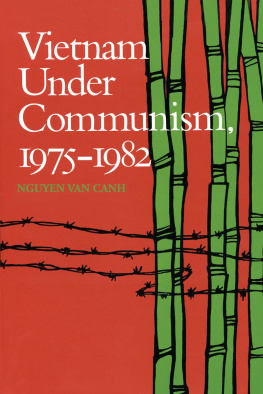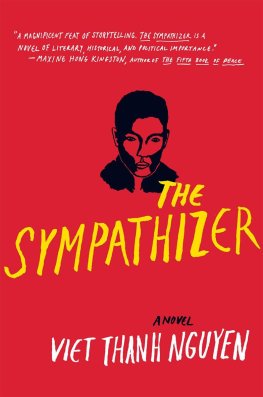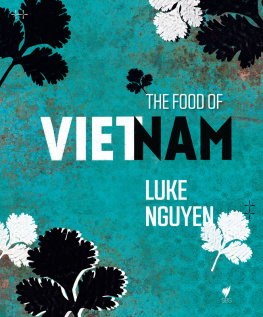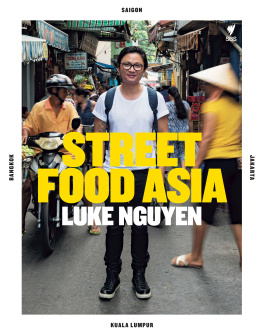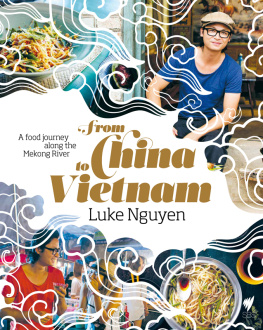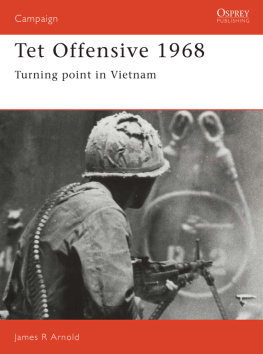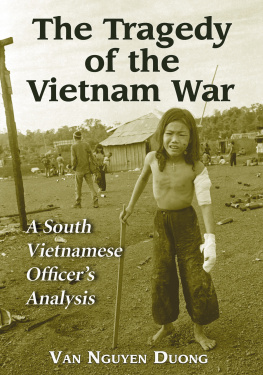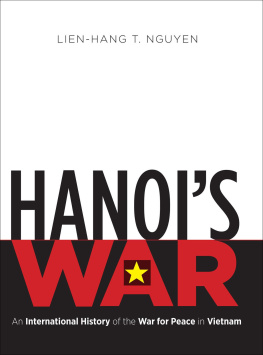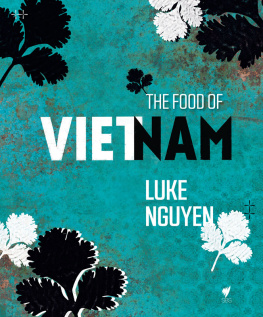Văn Canh Nguyễn - Vietnam under Communism, 1975-1982
Here you can read online Văn Canh Nguyễn - Vietnam under Communism, 1975-1982 full text of the book (entire story) in english for free. Download pdf and epub, get meaning, cover and reviews about this ebook. year: 2017, genre: Politics. Description of the work, (preface) as well as reviews are available. Best literature library LitArk.com created for fans of good reading and offers a wide selection of genres:
Romance novel
Science fiction
Adventure
Detective
Science
History
Home and family
Prose
Art
Politics
Computer
Non-fiction
Religion
Business
Children
Humor
Choose a favorite category and find really read worthwhile books. Enjoy immersion in the world of imagination, feel the emotions of the characters or learn something new for yourself, make an fascinating discovery.
- Book:Vietnam under Communism, 1975-1982
- Author:
- Genre:
- Year:2017
- Rating:4 / 5
- Favourites:Add to favourites
- Your mark:
- 80
- 1
- 2
- 3
- 4
- 5
Vietnam under Communism, 1975-1982: summary, description and annotation
We offer to read an annotation, description, summary or preface (depends on what the author of the book "Vietnam under Communism, 1975-1982" wrote himself). If you haven't found the necessary information about the book — write in the comments, we will try to find it.
Vietnam under Communism, 1975-1982 — read online for free the complete book (whole text) full work
Below is the text of the book, divided by pages. System saving the place of the last page read, allows you to conveniently read the book "Vietnam under Communism, 1975-1982" online for free, without having to search again every time where you left off. Put a bookmark, and you can go to the page where you finished reading at any time.
Font size:
Interval:
Bookmark:
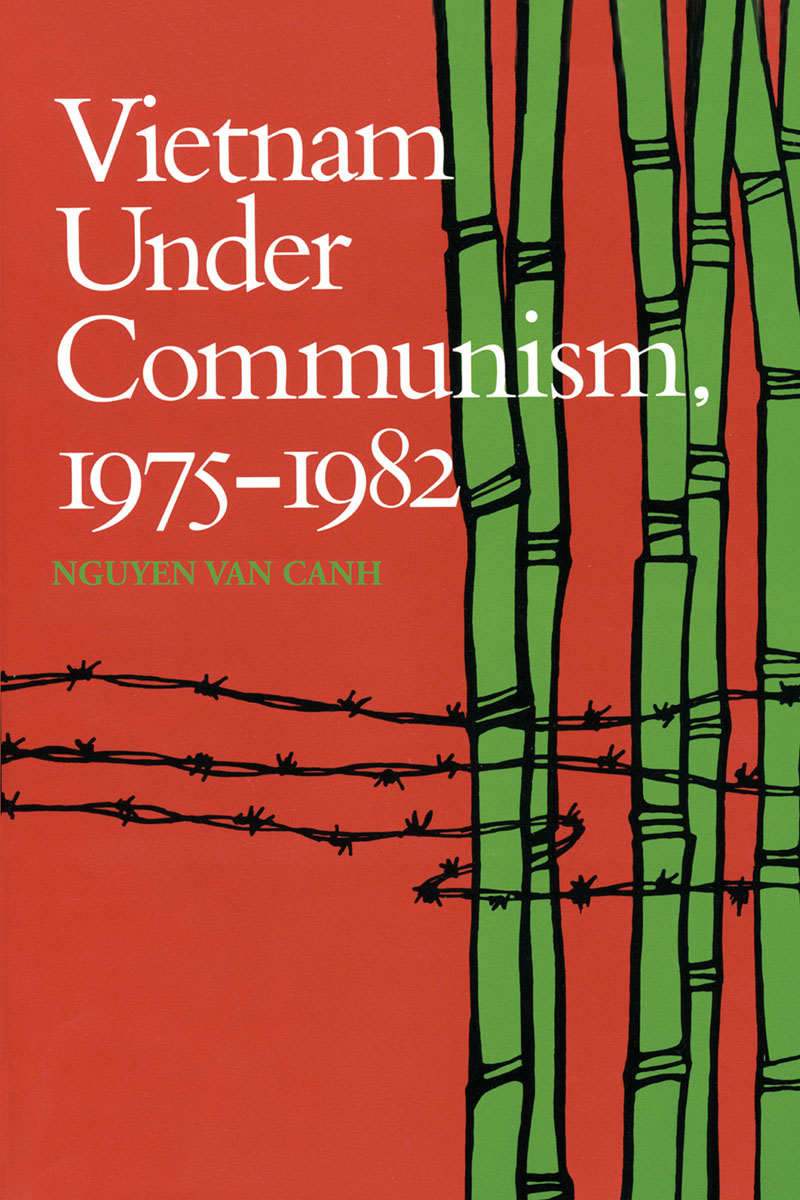

With its eminent scholars and world-renowned library and archives, the Hoover Institution seeks to improve the human condition by advancing ideas that promote economic opportunity and prosperity, while securing and safeguarding peace for America and all mankind. The views expressed in its publications are entirely those of the authors and do not necessarily reflect the views of the staff, officers, or Board of Overseers of the Hoover Institution. www.hoover.org
Photographs 15 courtesy of Der Spiegel from Wir sterben und haben keinen Sarg, August 8, 1981.
Photographs 6, 10, and 11 courtesy of Sphia University, Socio-Economic INstitute, Asian Relations Center Boat People: Todays Untouchables (Tokyo, 1978).
Photographs 7, 8, and 9 by Maekawa Makoto, courtesy of Sophia University, Socio-Economic Institute, Asian Relations Center, Refugees: The Cry of the Indochinese (Tokyo, 1980).
Hoover Institution Press Publication No. 285
Hoover Institution at Leland Stanford Junior University,
Stanford, California 94305-6003
Copyright 2017 by the Board of Trustees of the Leland Stanford Junior University
All rights reserved. No part of this publication may be reproduced, stored in a retrieval system, or transmitted in any form or by any means, electronic, mechanical, photocopying, recording, or otherwise, without written permission of the publisher and copyright holders.
For permission to reuse material from Vietnam under Communism, 1975 - 1982 by Van Canh, Nguyen ISBN 978-0-8179-7852-5, please access www.copyright.com or contact the Copyright Clearance Center, Inc. (CCC), 222 Rosewood Drive, Danvers, MA 01923, 978-750-8400.CCC is a not-for-profit organization that provides licenses and registration for a variety of uses.
First printing 1985
24 23 22 21 20 19 18 17 9 8 7 6 5 4 3 2
Manufactured in the United States of America
The paper used in this publication meets the minimum requirements of the American National Standard for Information SciencesPermanence of Paper for Printed Library Materials, ANSI/NISO Z39.48-1992. 
Library of Congress Cataloging-in-Publication Data
Van Canh, Nguyen, 1936
Vietnam under Communism, 1975-1982.
Bibliography: p.
Includes index.
1. Vietnam History 1975 - . 2. Communism
Vietnam. I. Cooper, Earle. II. Title.
DS559.912.N39 1983 959.7044 83-10754
ISBN: 0-8179-7851-8
ISBN: 0-8179-7852-5 (pbk)
To my parents
From the Tet Offensive to the Communist Takeover
Communism and the Vietnamese Economy
The New Leaders
Conflict, Change, and Ideology
The Party and the People
Repressionand Resistance
Culture with a Socialist Content
Measures Against Religion
Vietnams Bamboo Gulag
Re-education or Revenge?
Hanois Foreign Policy:
Hanois Foreign Policy:
Nguyen Van Canh first became known to me in the course of a brief visit to Saigon in the late 1960s. He was later to become a professor in the law school of Saigon University. I was interested in his research because he had written his doctorate on the Vietnamese communist movement, a subject in which I was greatly interested as a student of comparative communism.
Spending some time with Canh, I was impressed both with his intellect and his integrity. He and his family lived in very humble circumstances. Indeed, for those of us accustomed to the American way of life, his living conditions fell well below the poverty line. But his interest in books, his manner of speech, and his involvement in the problems of the day marked him as an intellectual, albeit one uprooted and tossed about by the turmoil that had engulfed his society.
There could be no doubt regarding his political commitments. He had long been an active member of the Dai Viet, Vietnams staunchly anticommunist nationalist movement. Canh, like millions of other Vietnamese, was living proof that communism and nationalism were not synonymous, the views of certain Americans to the contrary. His love of Vietnam and his determination to fight against all forms of external domination, including that of communism (which he believed to be a creed foreign to basic Vietnamese values), have long constituted the core of his politics.
Above all, this work represents the perspective of a Vietnamese who was himself actively engaged in the political and intellectual life of his society. Hence, it stands apart from any book that might be produced by a disengaged foreign scholar. Canhs views quickly become apparent. If his criticism of the Communists is trenchant and sustained, he is also critical of the South Vietnamese governments headed by Diem and Thieu. Herein is reflected one of the supreme problems of those who opposed the Communists: the disunity of South Vietnams noncommunists, who in actuality constituted the great majority of the citizenry. Canh is also critical of key aspects of American policy, most particularly what he regards as the fraudulent Paris Agreement of January 1973, which he believes paved the way for Hanois victory.
Fortunately for them, Canh and his family were able to escape from Vietnam at the time of the collapse. Otherwise, he would have certainly met the fate of many whom he describes in the pages that follow. It is not surprising that, on occasion, the searing emotional tragedies that form a part of Canhs life are reflected in the words that he chooses, the critique that he offers. In many instances, he is writing about the fate of friends and associates and recounting developments in a society of which he was a dedicated part.
Given the paucity of information on some subjects and the dispute regarding the facts on others, certain of Canhs interpretations and data will undoubtedly be subject to future revision, as he would be the first to acknowledge. Nonetheless, in this work, we have a comprehensive account of the structure and character of Vietnamese society under communism. In presenting this account, moreover, Nguyen Van Canh has turned to a variety of sources: official statements and documents from the leading officials and organs of the Democratic Republic of Vietnam; accounts provided by Western journalists allowed to visit the country; interpretations by longtime students of Vietnam; and by no means least, interviews with a variety of refugees.
Many of Canhs central themes are verified by other sources, and they present a grim picture indeed. I found particularly depressing his account of the treatment of the Catholics, Buddhists, Hoa Hao, and Cao Dai leaders. Some of us will remember the thesis that if we Americans would only stop the killing, South Vietnam could have peace, with the South given a goodly measure of autonomy by the North. The National Liberation Front, we were told, would be allowed to establish a system separate from that being operated in Hanoi. A government of reconciliation would be created in Saigon, a united front into which all but the diehard reactionaries would be welcomed.
I am convinced that many Americans who repeatedly voiced these sentiments sincerely believed what they said. It is a tragedy that the skeptics among us were not able to convince a sizable portion of the journalist and intellectual communities otherwise. (In fairness, it should be noted that not a few noncommunist Vietnamese took a similar position.)
Next pageFont size:
Interval:
Bookmark:
Similar books «Vietnam under Communism, 1975-1982»
Look at similar books to Vietnam under Communism, 1975-1982. We have selected literature similar in name and meaning in the hope of providing readers with more options to find new, interesting, not yet read works.
Discussion, reviews of the book Vietnam under Communism, 1975-1982 and just readers' own opinions. Leave your comments, write what you think about the work, its meaning or the main characters. Specify what exactly you liked and what you didn't like, and why you think so.

